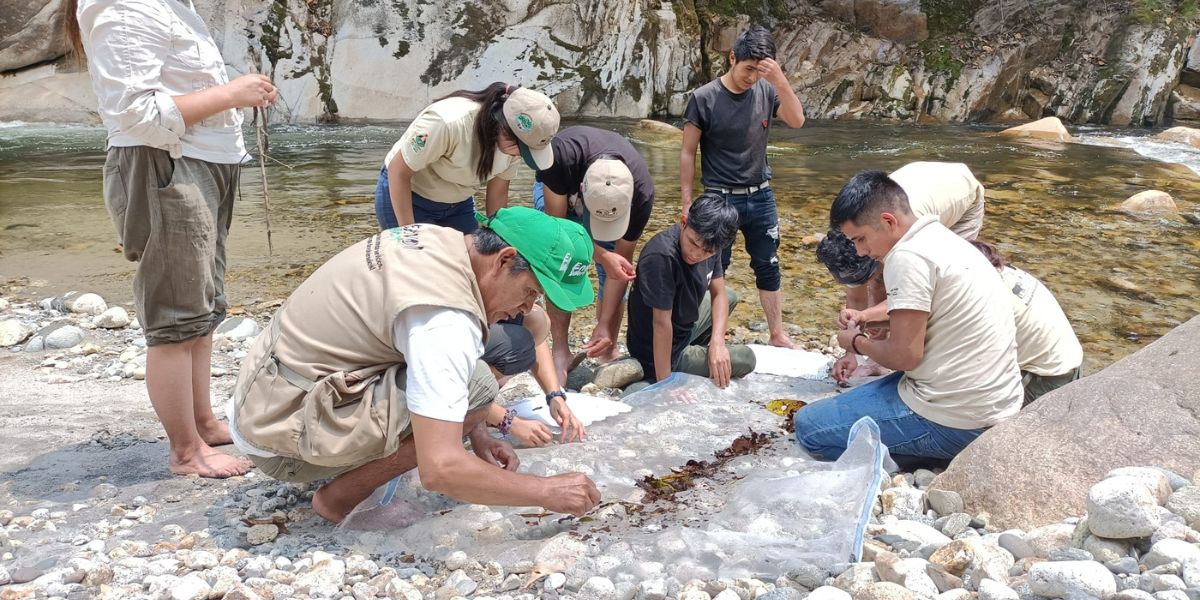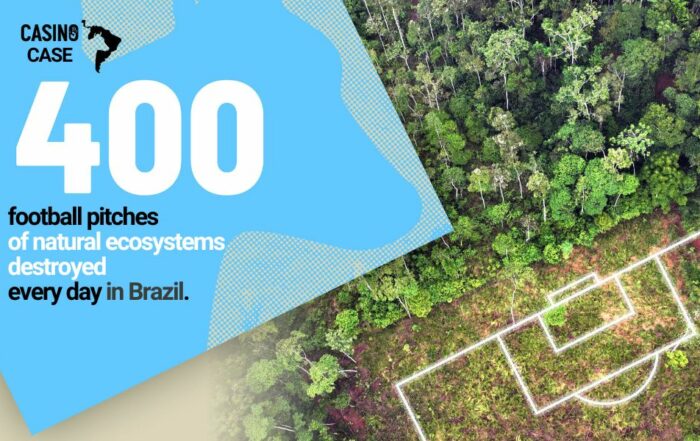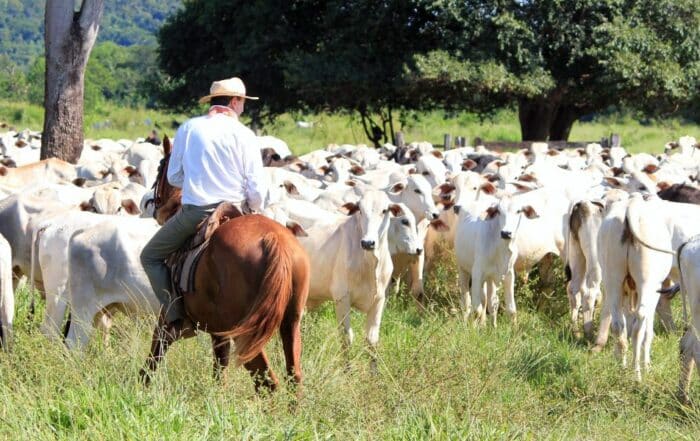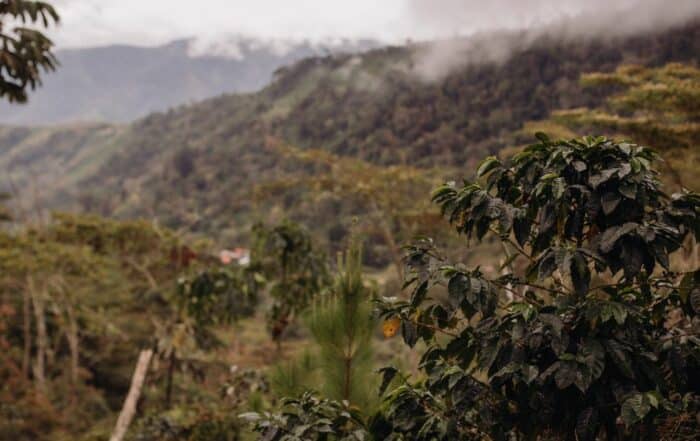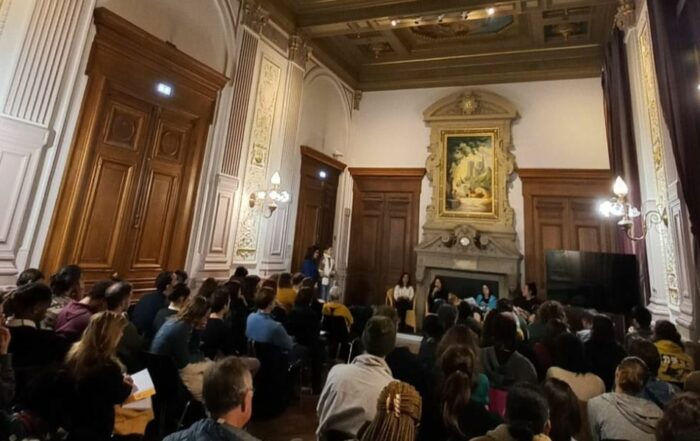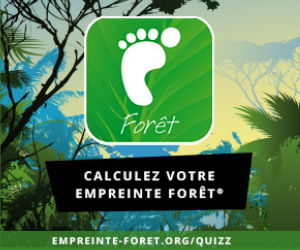On Saturday, September 21, 2024, the Envol Vert Pichanaki team and its field partners in the area conducted several trainings in the Nueva Florida community, located in the buffer zone of the Pui Pui Protected Forest:
For us, it is key to start a partnership with the community so that they get to know the living beings that surround us in order to understand their environment and want to take care of it. We also believe that it is very useful to have some information about the quality of their condition and work on improving it. Our motto is “Discover, love, protect”.
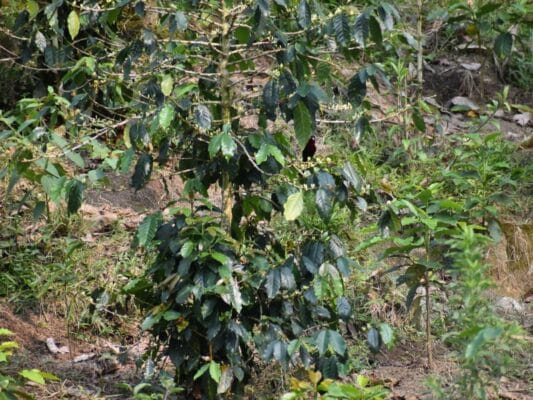
Silver-beaked Tanage (Ramphocelus carbo)
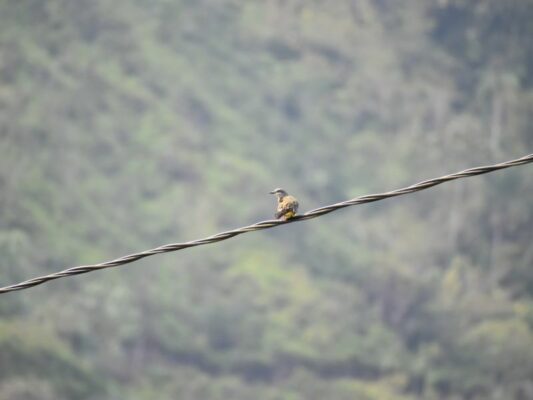
Tropical kingbird (Tyrannus melancholicus)
The following day, on Sunday, September the 22nd, we participated in a walk involving SERNANP (National Service of Natural Areas Protected by the State) and UNISCJSA (National Intercultural University of the Central Jungle Juan Santos Atahualpa) in Nueva Florida. Seventeen allies for the conservation of the Pichanaki forests participated. The hike started early in the morning from the town center, Nueva Florida, heading towards the Pui Pui Protected Forest. It was very interesting because we observed and identified different types of birds hand in hand with the technical team of SERNANP, which has specialized personnel. We used binoculars and the Merlin application to recognize some hidden birds through their songs and calls. We were able to observe birds such as: silver-billed tanager, melanistic tyrant, oropendola, wild guan, manakin, flycatcher, pigeon, white-naped pigeon, white-headed warbler and magpie.
The hike also allowed the observation of other forest animals such as amphibians and insects:
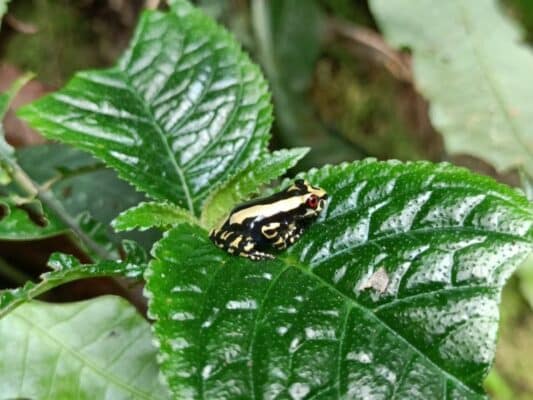
Frog (Ranitomeya flavovittata)
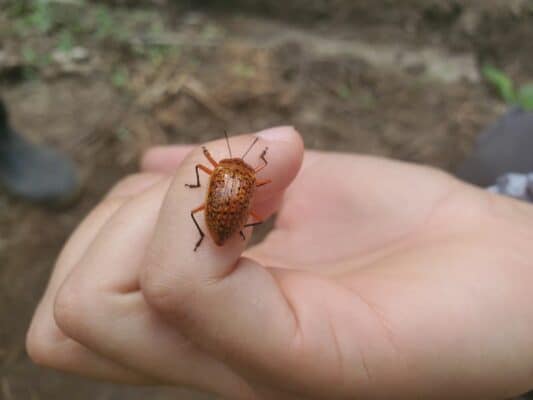
Beetle
As a second activity, water quality monitoring was carried out through biological parameters. This methodology consists of collecting macroinvertebrates from the river with the help of a mesh and then identifying them. There is a great diversity of aquatic macroinvertebrates and they need different conditions to live. By seeing which ones are present in the water we determine an index, and we can determine whether or not the water is of good quality according to this index. Thanks to this activity, it was concluded that the quality of the river was good, because the index was 45, a number between 31-50 which corresponds to a good water quality result.
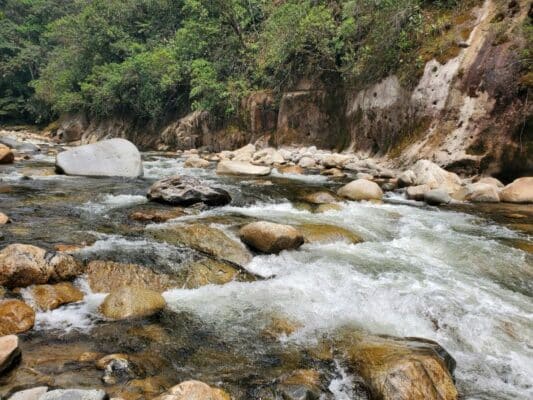
The monitored river
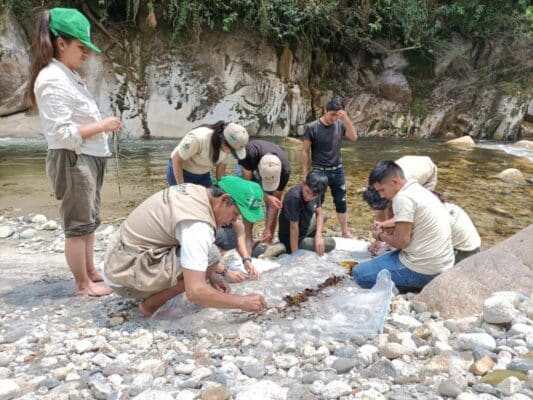
Collecting the macroinvertebrates in the netting
It’s amazing the number and diversity of macroinvertebrates that are in the river without us knowing it!
This walk allowed us to teach the people present many things about birds and macroinvertebrates. It was the first activity of this type with our partners to value biodiversity and prepare for the following field trips to be carried out with the villagers.
On Saturday, September 21, 2024, the Envol Vert Pichanaki team and its field partners in the area conducted several trainings in the Nueva Florida community, located in the buffer zone of the Pui Pui Protected Forest:
For us, it is key to start a partnership with the community so that they get to know the living beings that surround us in order to understand their environment and want to take care of it. We also believe that it is very useful to have some information about the quality of their condition and work on improving it. Our motto is “Discover, love, protect”.

Silver-beaked Tanage (Ramphocelus carbo)

Tropical kingbird (Tyrannus melancholicus)
The following day, on Sunday, September the 22nd, we participated in a walk involving SERNANP (National Service of Natural Areas Protected by the State) and UNISCJSA (National Intercultural University of the Central Jungle Juan Santos Atahualpa) in Nueva Florida. Seventeen allies for the conservation of the Pichanaki forests participated. The hike started early in the morning from the town center, Nueva Florida, heading towards the Pui Pui Protected Forest. It was very interesting because we observed and identified different types of birds hand in hand with the technical team of SERNANP, which has specialized personnel. We used binoculars and the Merlin application to recognize some hidden birds through their songs and calls. We were able to observe birds such as: silver-billed tanager, melanistic tyrant, oropendola, wild guan, manakin, flycatcher, pigeon, white-naped pigeon, white-headed warbler and magpie.
The hike also allowed the observation of other forest animals such as amphibians and insects:

Frog (Ranitomeya flavovittata)

Beetle
As a second activity, water quality monitoring was carried out through biological parameters. This methodology consists of collecting macroinvertebrates from the river with the help of a mesh and then identifying them. There is a great diversity of aquatic macroinvertebrates and they need different conditions to live. By seeing which ones are present in the water we determine an index, and we can determine whether or not the water is of good quality according to this index. Thanks to this activity, it was concluded that the quality of the river was good, because the index was 45, a number between 31-50 which corresponds to a good water quality result.

The monitored river

Collecting the macroinvertebrates in the netting
It’s amazing the number and diversity of macroinvertebrates that are in the river without us knowing it!
This walk allowed us to teach the people present many things about birds and macroinvertebrates. It was the first activity of this type with our partners to value biodiversity and prepare for the following field trips to be carried out with the villagers.

